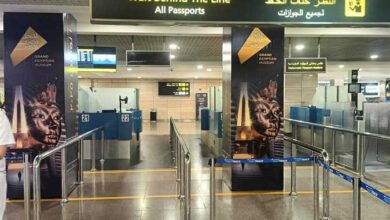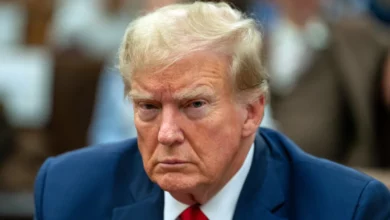The recent violence at Maspero was the worst in Cairo since the mass street protests in January that overthrew Hosni Mubarak. As bereaved families and friends mourn their losses, and sympathizers come together in support of the victims, the events raise crucial questions about how it all happened and where Egypt stands eight months after the popular uprising that swept Mubarak from power.
The frustrations of Egypt’s Copts have been brewing for a long time. They have legitimate grievances: restrictions on the building of churches, discrimination in government jobs, and a lack of adequate political representation. Attacks against churches have also intensified over the past few months, provoking widespread anger and condemnation from Egypt’s Coptic community. The latest attack on a church in Aswan two weeks ago, which triggered the recent protests, was at least the fourth since Mubarak’s ouster.
On Sunday night, what started as a peaceful assembly by (mostly Coptic) demonstrators was quickly met with excessive force by the military and police. By the end of the night, at least 25 civilians were dead and over 200 wounded. The causes of all the deaths have yet to be determined, but numerous eyewitnesses, including an Al-Masry Al-Youm reporter, described chaotic gunfire and armored military vehicles storming through dense crowds, a scene captured on video.
Meanwhile, Egyptian state television, whose headquarters overlooks the site where most of the clashes took place, chose to incite violence rather than provide unbiased coverage of the unfolding events. News broadcasters accused "armed Coptic protesters" of physically antagonizing Egyptian military personnel, and commentators encouraged citizens to take to the streets to defend of the army. Surely enough, by nightfall, protesters were being attacked in the streets by young men with stones, clubs, even firearms, and chanting anti-Coptic slogans. The army watched on.
All those responsible for Sunday’s violence against protesters should be held accountable – and fast. Still, the events point to deeper challenges in the transition period that demand a candid reflection on where the Egyptian revolution stands today.
Sectarianism is a real problem in Egypt that pre-dates the revolution and must be genuinely addressed; instead, it has been recklessly aggravated by those in power who insist they are anchors of stability. The military’s claim to upholding order quickly dissolved on Sunday as authorities allowed – possibly even encouraged – disorder and the stoking of religious hatred. This goes against the principles of the revolution – freedom, dignity and equality – and represents a threat to Egyptian democracy as a whole, not just to Copts.
Sunday night’s events were marked by many firsts: It was the first time the army attacked a Christian demonstration, the first time soldiers may be directly implicated in the killing of protesters, and the first time a sectarian crisis showed signs of boiling over into wider discontent with military rule. But the deadly violence was also an example of ongoing political failures under Egypt’s military’s leadership.
Since taking power, the Supreme Council of the Armed Forces (SCAF) has failed to address many legitimate grievances raised by Egyptians, to ensure that peaceful protests are not exposed to sabotage or violent crackdown, and protect places of worship and hospitals from mob violence. Most important, the SCAF has shown itself incapable or unwilling to foster a political environment in which legitimate demands can be addressed through existing laws and state institutions. Instead, grievances are left to fester, and when public anger escalates the military and police resort to force and intimidation.
While Sunday’s crackdown may have been distinguished by the heavy toll it inflicted, the mentality behind it was nothing new. Mubarak’s regime always viewed Egypt as inherently unstable, a place that needed to be held in check by a heavy-handed security apparatus. It often favored coercive tactics over meaningful political channels to solve its problems, an attitude that helped bring about its demise. In the new Egypt, that lesson seems to be lost on those in charge.
The SCAF must stop behaving like the guardian of the Egyptian revolution that stands above any criticism. It does not. While some Egyptians may have given the SCAF a mandate to guide the transition to democracy, nobody has granted it license to monopolize the political process and silence its opponents, especially through the use of force. Democracy is complex business that requires the collective efforts of all segments of Egyptian society and all shades of its political spectrum.
More than anything, Sunday’s events are a painful reminder that Egypt needs an elected government as soon as possible that can begin to address the country’s many social and political problems in an open and just fashion. Only then can Egyptians begin to make a decisive break with their authoritarian past and chart a more democratic future. Over the past few months, at critical junctures, the army has delayed this process rather than advance it. On their own, the generals cannot lead Egypt to democracy. For that, Egypt will need real civilian representatives chosen by the people.



